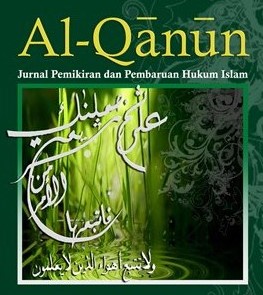Kajian Hadis Missoginis tentang Iddah
DOI:
https://doi.org/10.15642/alqanun.2020.23.2.295-315Abstract
Recent studies on women have begun to poke around the "classical women's interpretation" from the understanding of previous scholars. Concretely, studies on women today often produce misogenic conclusions, in the form of placing women in a low position and full of responsibility. One of them is related to the "provision of iddah period for women", especially for women whose husbands died while pregnant. The first conclusion of this paper is that there is a "provision of 'iddah" as a waiting period which is only mandatory for women because' iddah functions to wait for certainty about the cleanliness of a woman's womb from her fetus, which of course will make it clear that children born in her iddah period have no relationship nasab with the next husband. Thus, the application of the provisions of 'iddah and ih}da>d for these women is far from the missogynist which is often propagated by the feminimism movement. The second conclusion is that a pregnant woman whose husband died is until the delivery is complete, because the hadith narrated by al-Tirmidhy number 1193 eliminates the confusion of friends who are in dispute about this as in the history of hadith number 1194.
Downloads
References
Al Faruq. “Pemahaman Kontekstual terhadap Hadis al Ishari dalam Sahih al Bukhari.” Dalam Antologi Kajian Islam. 17. Surabaya: PPS IAIN Sunan Ampel, 2010.
Al-Nasaiy. Sunan al-Kubra. Vol. III. Beirut: Dar al-Kutub al-’Ilmiyyah, t.t.
Al-Qardhawy, Yusuf. al-Madkhal li Dirasah al-Sunnah al-Nabawiyah. Diterjemahkan oleh Agus Suyadi Raharusun dan Dede Rodin. Bandung: Pustaka Setia, 2007.
Al-Tirmidhy, Abu ‘Isa Muhammad ibn ‘Isa ibn Surah. Sunan al-Tirmidhy. Vol. III. Beirut: Dar al-Kutub al-’Ilmiyyah, 1987.
Anwar, Ghozali. “Wacana Teologis Feminis Muslim.” Dalam Wacana Teologis Feminis, disunting oleh Zakiyuddin Baidawi. Yogyakarta: Pustaka Pelajar, 1996.
Asqallany, Ibn Hajar al-’. Tahdhib al-Tahdhib. Vol. 1. Beirut: Dar al-Ilmiyah, 1994.
Bakr, ’Abd al-Qadir Mahmud al-. al-Ahkam al-Shar’iyah fi al-Ahwal al-Shakhsiyyah. Vol. III. Kairo: Dar al-Salam, 2006.
Fuad, Muhammad. Fiqih Wanita Lengkap. Jombang: Lintas Media, 2007.
Jurjawy, ’Aly Ahmad al-. Hikmah al-Tashri’ wa Falsafatuh. Beirut: Dar al-Fikr, t.t.
Muhammad, Husain. Islam Agama Ramah Perempuan: Pembelaan Kiai Pesantren. Yogyakarta: LKiS, 2004.
Muslim. Sahih Muslim. Vol. II. Bandung: Dahlan, t.t.
Muzanny, Jamal al-Din Abi al Hajjaj Yusuf al-. Tahdhib al-Kamal li Asmai al-Rijal. Vol. XV. Beirut: Dar al-Fikr, 1994.
‘Ula, al-Hafiz Abu al-. Tuhfah al-Ahwady. Vol. IV. Beirut: Dar al-Kutub al-’Ilmiyyah, 1990.
Zahrah, Muhammad Abu. Usul al-Fiqh. Kairo: Dar al-Fikr al-’Araby, t.t.






